Yes, I cut up some of my comic books in the late-1960s. Get over it!
Books and histories about comics were virtually nonexistent. Reprints, especially from the Golden Age, were few and far between. And the big “and”… and, there was no internet! Those hooked into fandom could share their mania through the mail in the form of fanzines, but access to most of the good stuff was limited. So when DC started running these “Fact Files,” the stories of their only sometimes-seen Golden Age heroes, I was hooked. These, and other pages aimed at fans, their own stilted, insurance business-mindset attempt at what Stan Lee was doing in his own Bullpen Bulletins, were the closest thing to a comic history education I could get at the time.
My guess was these were written by DC’s resident historian, E. Nelson Bridwell*… though Paul Levitz (post-posting) sends word he believes fan turned assistant editor Mark Hanerfeld wrote them. (Rendering moot my little aside about Nelson: Ironically, while I ate up his 1960s history lessons, when we worked together on two 1970s comic book miniseries (World of Krypton and Secrets of the Legion of Superheroes, the first of which he edited, the second we co-plotted), I often wanted to strangle him for trying to choke the stories with all his damned historic details.)
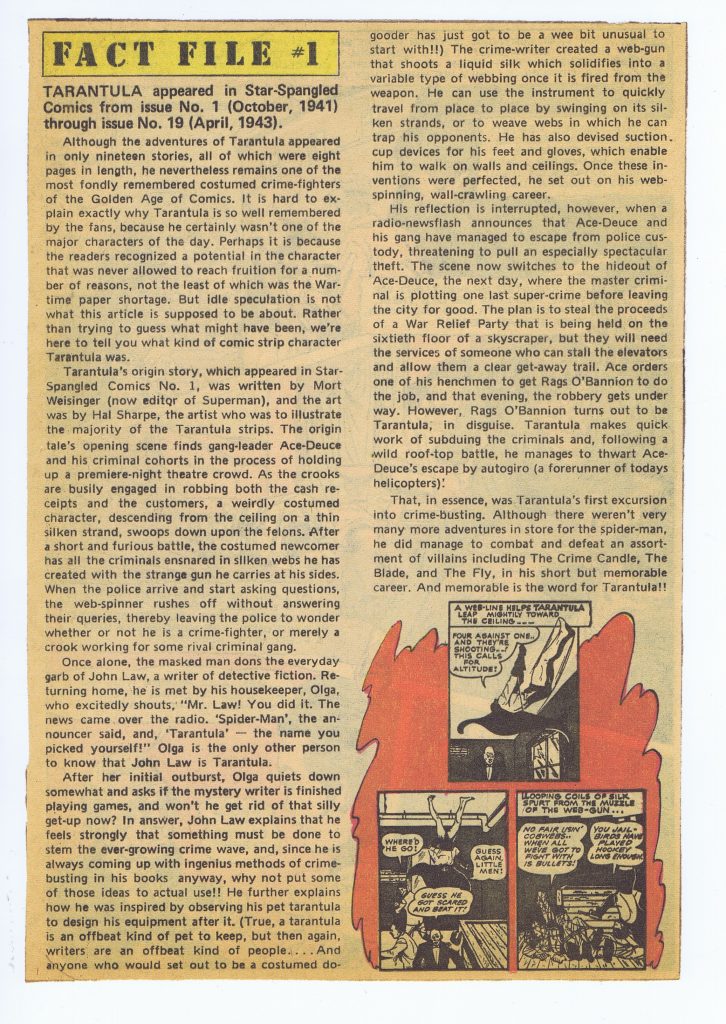
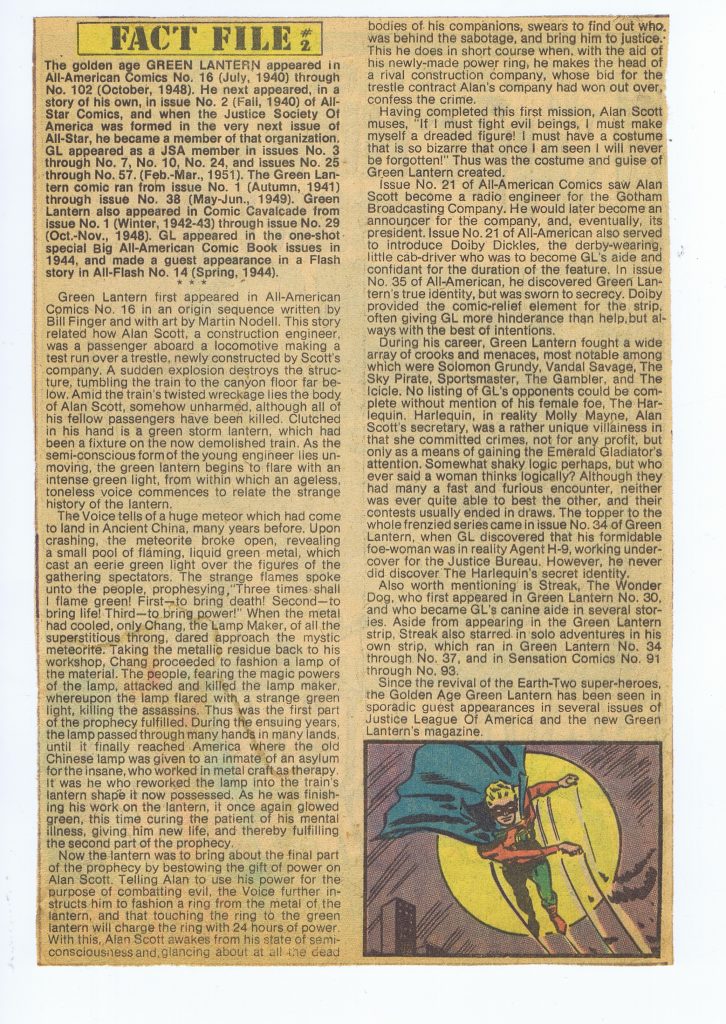
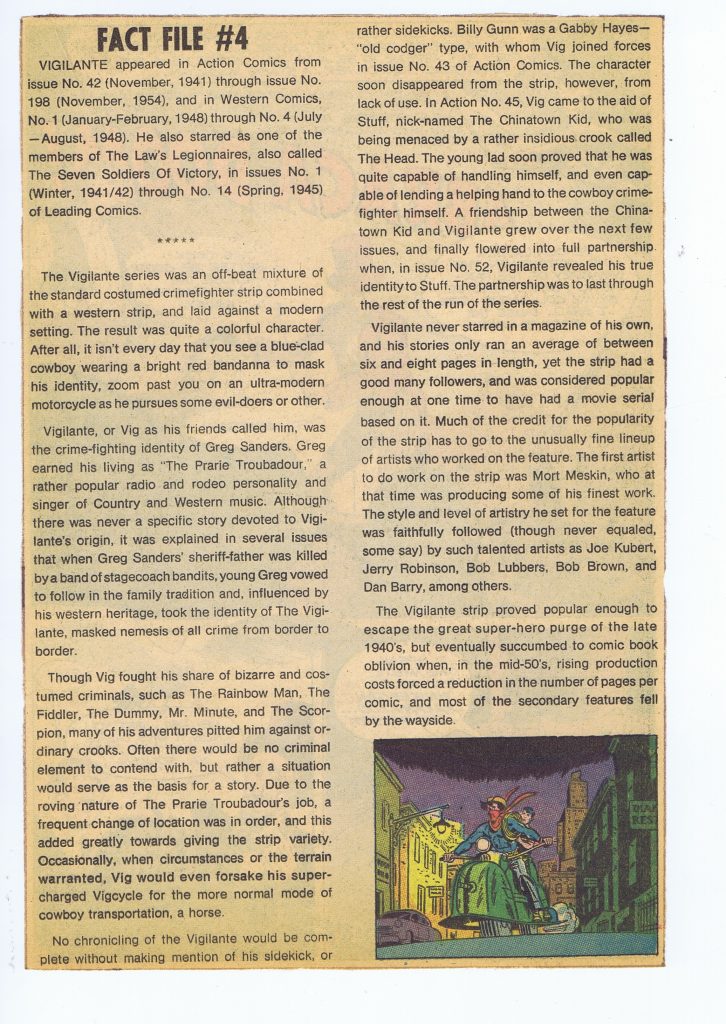
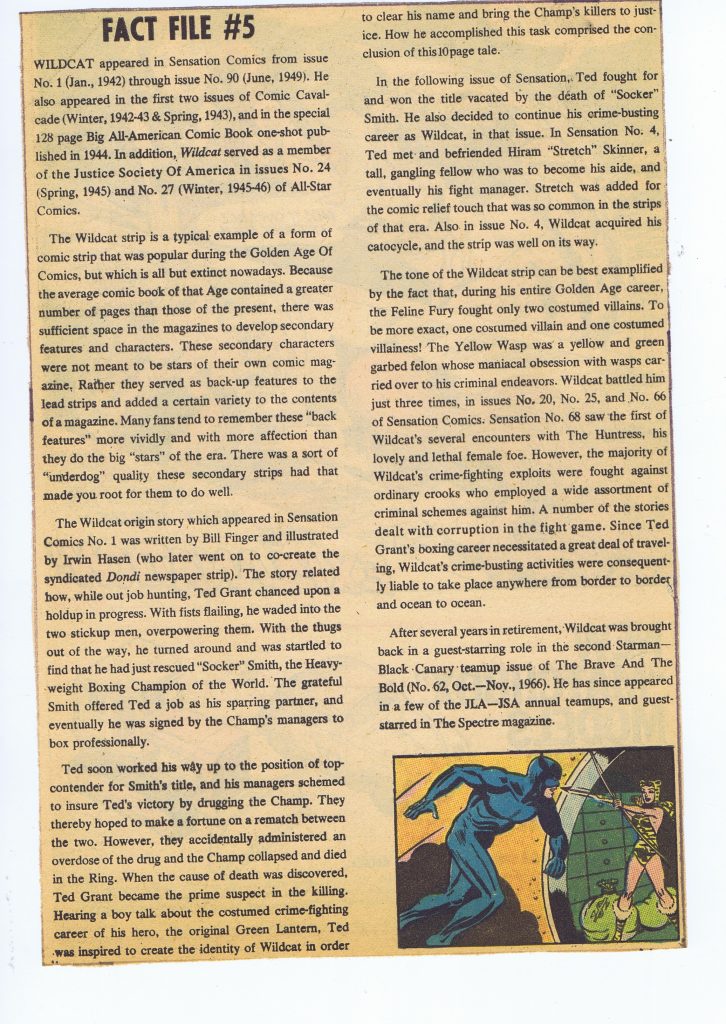
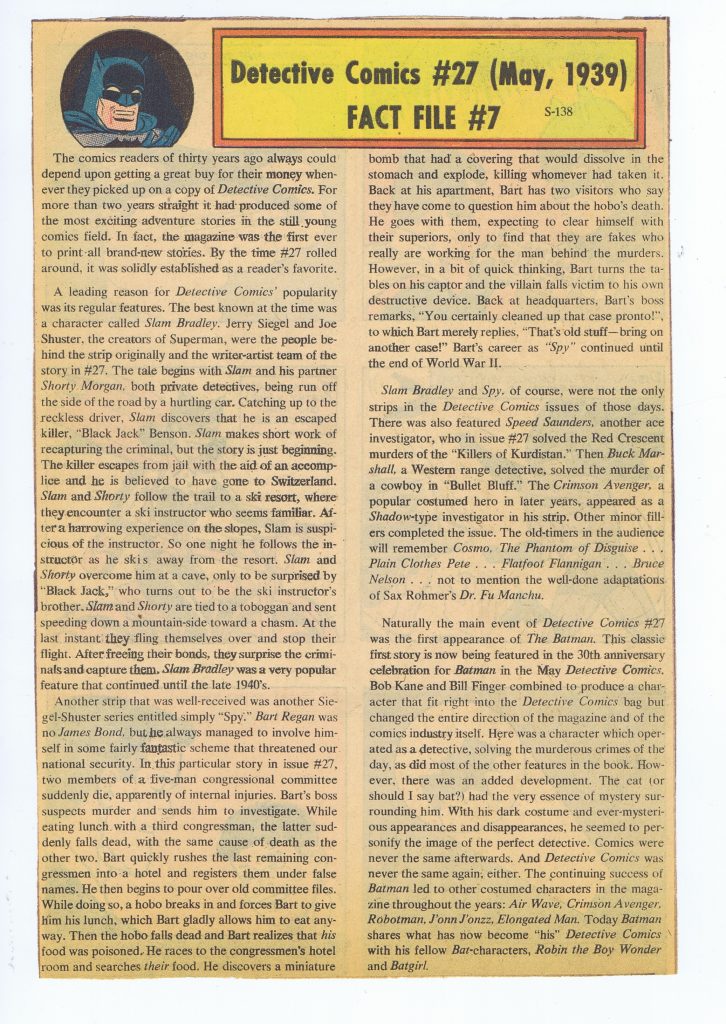
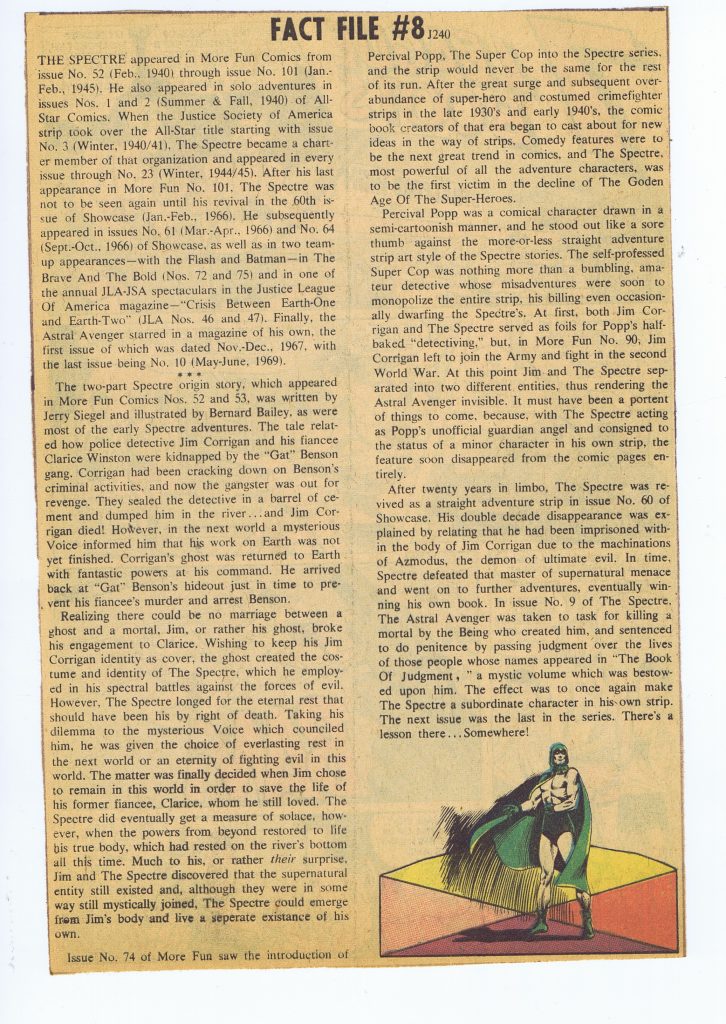
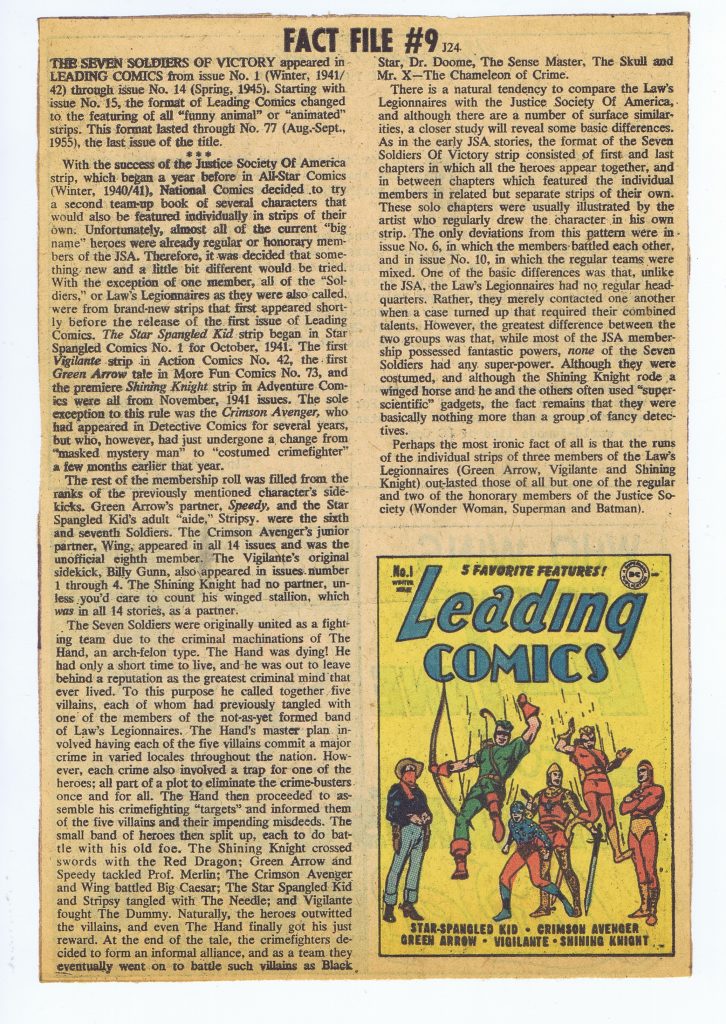
Tags: 1960s, Batman, comic books, comics, comics fandom, DC Comics, Detective Comics, E. Nelson Bridwell, Fact Files, fandom, Golden Age, Green Lantern, National Periodical Publications, Secrets of the Legion of Superheroes, Seven Soldiers of Victory, Tarantula, The Spectre, Vigilante, Wildcat, World of Krypton
I think it’s fun to see these pages again. One thing that is missing now for comics fans is the mystery of what 20 or 30 year old comic books were like and the excitement of seeing them. Is there any excitement for current young fans seeing comic books from the end of the 20th century? …or even comics from 1935 to 1955? (some of the books that we might have been thrilled to see)
Readers today have accessibility to almost anything ever published in collected editions and online. They also have the same accessibility to back issues, online, at their LCS, and at the conventions that (well, used to) run every week. In the 60s, reprints weren’t available except for a literal handful (Feiffer’s book was a goldmine in those days!), the LCS didn’t exist, there were a few reputable back issue mail order dealers, and you were lucky if there was one comic con a year in your area.